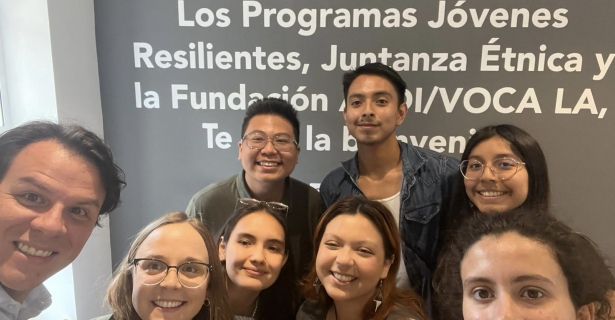Embarking on a research trip to Colombia was a dream come true. In the midst of the chaos of finals and moving out of my sophomore dorm, during any free time I could get, I found myself fantasizing about my first visit to Latin America. We were supposed to leave to the Logan Airport at 2:30AM. At around 11PM, my friend Billy and I were running last-minute packing errands, while also mentally preparing for the trip. Our excitement mixed with anxieties, but after a thorough discussion, we decided to eliminate any expectations and just open our minds to whatever is to come.
After a quite long journey and many unsuccessful attempts to catch up on sleep on the airplane post-finals season, we finally set foot in Bogotá. Throughout our stay in Bogotá, I just could not believe that I was in Colombia—this South American treasure with its diverse ecosystems, intriguing history, and warm-hearted people. I am the first one in my family to receive the opportunity to explore this unique country with such a rich history. As I reflect on our stay in Bogotá, I realize that a part of my disbelief was caused by the overwhelming feeling of familiarity with my home country of Kyrgyzstan. Despite being located more than 8,500 miles away from my hometown of Bishkek, Bogotá’s vibrant culture, infrastructure, and kind locals felt like I had lived there my entire life.
This observation only enhanced my passion for my research topic, as the issues related to labor migration are very prevalent both in Colombia and in Kyrgyzstan. Nonetheless, I found that the discussion of the effects of labor migration on the children of labor migrants is much more common in Kyrgyzstan than in Colombia. Sometimes, I found myself desperate for information on any efforts to promote this discussion and create programs for Colombian children whose parents are labor migrants in other parts of the country or the world. However, this continued pushed me forward because I realized how understudied yet critical this topic is. Luckily, our visit to USAID’s office in Bogotá and our meeting with the Elizabeth and Alejandro–the manager of the inclusion program and the manager of the youth program—were both extremely informative in my understanding of the international organizations’ efforts in promoting youth advancement initiatives in Colombia. Elizabeth and Alejandro gave us fascinating presentations on the youth and indigenous communities advancement programs that change the lives of thousands of Colombians across the nation. I had not heard of these programs being realized in Kyrgyzstan. That day, I discovered another potential for my research–to facilitate an exchange of multi-national mechanisms to protect the children of labor migrants in different parts of the world, which could be influential for global organization to recognize the issues related to the effects of labor migration on the children of labor migrants and identity strategies to mitigate them.
Our stay in Bogotá taught me to embrace the unknown, while traveling and conducting my research, as well as to look for the familiar and the new no matter where I end up.

